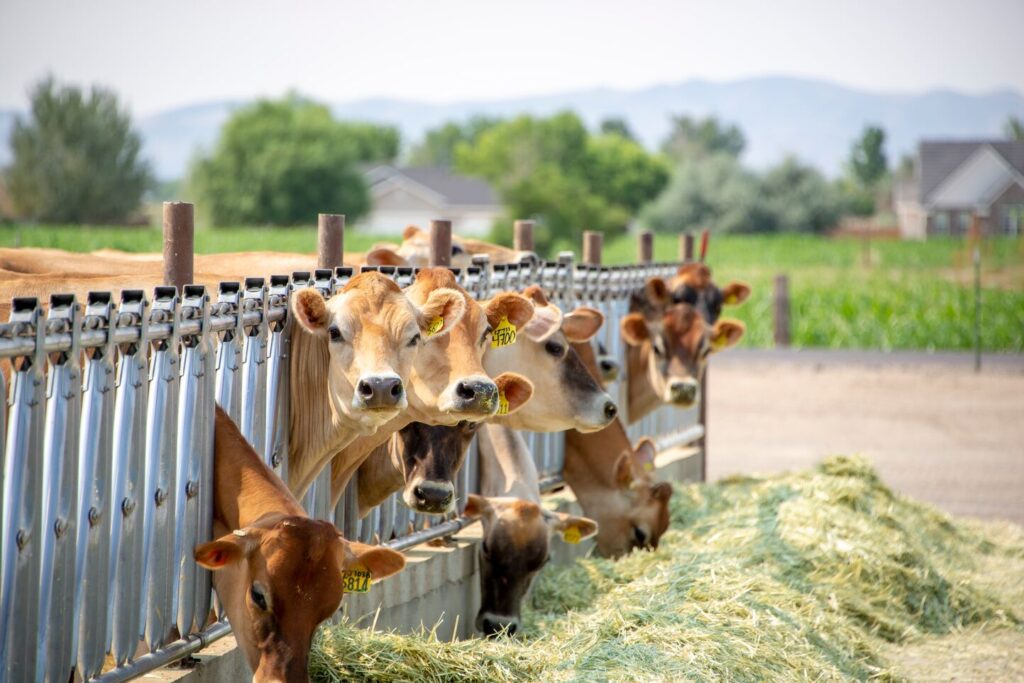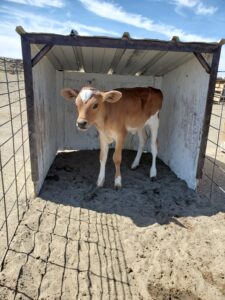By 2050, approximately nine billion people will be living on the planet; with this in mind, food production must increase by 60 percent. Currently, one in six Americans is food insecure in the United States. As a consumer, reducing food waste is a pivotal and necessary step to help support our community, each other, and our farms. On average, an American family of four purchases approximately 96 pounds of food a week; of this, around 22 pounds go to waste in the home. By wasting less, we increase the amount of food that retailers, food companies, and restaurants can give back to the community.
What Dairy Farmers (and Cows) Are Doing To Help
Here in Nevada, we are home to just over 25 farms ranging in size from 500 – 25,000 cows, and for years we’ve worked hard to provide delicious and nutritious food to our communities. Did you know the average dairy cow produces 7.5 gallons of milk per day? Meaning, it only takes 75,000 of our dairy cows to supply everyone in Nevada with three cups of dairy daily. Additionally, the average dairy cow produces 11,000 gallons of milk during its lifespan, which breaks down to 200,000 cups of milk. That means if each person consumes 3 cups of dairy daily, one cow can feed up to 66,666 people.
Like humans, there are millions of cows in the United States, and they, too, need to eat. Only 20 percent of a cow’s diet consists of food humans can eat, and just 2.2 percent of that food is made up of what humans want to eat. Cows have ruminant digestive systems that allow them to eat things humans can’t digest, like almond hulls and cotton seeds. Instead of throwing this away, it’s sold to dairy farmers to mix with other ingredients to make feed.
The dairy industry has made strides in refining farming practices better to serve the land, the animals and consumers. But it doesn’t mean it’s just up to them to maintain our food source.
Do Your Part
Farmers have always been dedicated to giving back to their communities with nutritious and delicious food.There is a lot we must do as a collective to ensure we stay on track to increase our food production by 2050. Maximizing food production requires both farmers and consumers to continue doing their best they can to reduce waste and make conscious decisions for the betterment of others and our planet. With solidarity and support for one another, we can make a significant impact.



